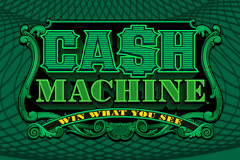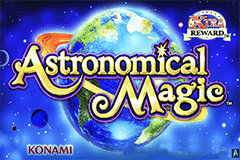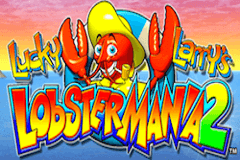Deal or No Deal Blackjack
Deal or No Deal is one of the most memorable game shows of the past 20 years, with the initial version that was released in the Netherlands having spawned sister shows throughout the world, including in the United Kingdom and the United States. The game combined sheer luck with tests of will and nerve. Players could take prizes offered to them over the course of the game, or reject those offers and shoot for even bigger rewards – with the risk of possibly ending up with a much smaller prize instead.
There have been many attempts to bring this franchise to the world of casino gaming. Several slot machines have recreated the game show action rather faithfully, but some table games have also been created for online gambling sites that feature the “banker offer” format as a bonus round or side bet. One rather innovative way of using this mechanic comes from Deal or No Deal Blackjack, a game in which there are offers made available to players on every hand based on the initial situation the cards present.
The Race to 21
Before we get into the interesting elements that make this a Deal or No Deal game, let’s go over the basic framework here. Blackjack is a card game in which players compete head-to-head against the dealer. The game is dealt out of a shoe made up of several standard 52-card decks.
At the start of each hand, each player makes a bet. The player then receives two cards face up, while the dealer will get one face up card, and one card face down (the “hole card”). The object of the game is to make a better hand than the dealer, typically by getting as close to 21 points without going over.
Hands are valued based on their cards, each of which are worth a certain number of points. Numbered cards are worth their numerical value (in other words, a seven is worth seven points), while all face cards are worth ten. Aces can be worth either 11 points, or revert to one single point to help prevent players from going over the target of 21.
The best possible hand is a starting hand of an ace and any ten point card, which makes a natural 21. This hand, naturally, is also known as a “blackjack.” This hand wins immediately, paying out at 3-2 odds. The only exception comes when the dealer also makes a blackjack; in those cases, the hands push.
If the dealer is showing a ten or an ace, they will also check for a blackjack. In the case of an ace, players will first be given the option of taking an insurance bet. This bet – which costs half of your initial wager – pays out at 2-1 odds should the dealer ultimately prove to have a blackjack. This essentially means that you will break even on the hand, as you will lose your initial bet but make up for it with the insurance payout.
Assuming the dealer doesn’t have a blackjack, and there are some player hands still active, the game will continue with each player getting the chance to improve their hand. Players have the option of taking several actions on their turn, though not all may be available at all times. The options include:
- Hit: If a player hits, they take one more card, adding it to their hand.
- Stand: When a player stands, they finalize their hand, passing the action to the next player.
- Double Down: This option, available only on the initial two cards, sees the player make a second bet (equal in size to their first) in exchange for exactly one more card, after which they must stand.
- Split: If the player’s initial hand is made up of two cards of the same value, they may split them into two hands, each of which is played for a full bet.
Some of these options vary based on the rules of specific games. In the case of Deal or No Deal Blackjack, for instance, you may only double down on a total of 9, 10, or 11. Most hands can be split up to three times and then played as normal, except for aces; two aces may only be split once, and each will only receive one extra card, after which you must stand.
Players continue playing out their hands until they stand or see the value of their hand go above 21. A total of 22 or more causes a hand to bust, meaning that all bets on that hand instantly lose.
Once all player hands have been completed, the dealer must then resolve their hand. First, the dealer’s down card is revealed. Then, the dealer must follow strict rules to play out their hand. In this case, the dealer must hit on any total of 16 or less, while standing on 17 or more. The dealer will continue playing until they either stand or bust.
Should the dealer bust, all remaining player bets instantly win at even money. If the dealer makes a hand, then it is compared to those of the players. Each player hand that is higher than the dealer’s wins, with all bets associated with that hand earning even money. If the dealer’s hand is higher, then the player hand loses, with all bets losing. Finally, a tie results in a push on all bets.
The Banker Offer
Where Deal or No Deal Blackjack plays with this time-tested formula is in the addition of a banker offer at the start of every hand. If you’re familiar with the television show, you’ll remember that these offers were a central part of the action. A player would receive an offer at intermittent points, having the option of ending the game early if they took the prize offered.
This game uses a very similar mechanic in order to give players the chance to bail out of hands before they begin. After the cards are dealt, the banker will make a cash offer on every hand you’ve played. The offer is based on your overall odds of winning based on how your hand stacks up against the dealer up card.
In many ways, this is the game’s version of the surrender action, only instead of a flat offer of getting half of your bet back, the offers can vary wildly. Very unpromising situations, like having a 15 vs. a dealer ace, might only return a few percent of your initial bet. Meanwhile, an 11 vs. a dealer six will bring a high offer, one that might be profitable enough to tempt you to collect your winnings immediately.
Of course, these offers are entirely optional, and you never have to take them if you’re not interested. Once you reject one by saying “no deal,” the hand will continue as normal for a blackjack game.
Maximize Your Earnings
Blackjack is well-known as a game of strategy, as players must make many decisions during gameplay that impact their chances of winning. Knowing when to hit, stand, or double down is critical to getting the most out of any blackjack game, and especially this one, where the house edge with perfect play is said to be just 0.37%.
One of the best ways to learn how to play optimally is to generate a basic strategy chart. Blackjack strategy varies in ways both subtle and dramatic based on rule changes, so you’ll want to make sure that you use a strategy appropriate for the game you are playing. There’s no need to memorize anything, unless you want to; simply refer to the chart and you can instantly know the best mathematical play in every situation.
If you don’t want to go through the trouble of learning or finding an entire strategy for the game, though, there are still a few tips we can give you to improve your odds. Here are a few basic hints to get you started:
- Doubling down should be done whenever you hold a total of 10 or 11 and have a higher score than the dealer’s up card. It should also be done with a nine vs. a dealer 3-6.
- Always split eights and aces. It is also worth splitting twos, threes, sixes, sevens and nines if the dealer has a six or lower.
- If the dealer has a seven or higher, you should not stand unless you have at least a total of 17. If you have a “soft” hand – one with an ace that still counts at 11 points – you should even hit with a 17, and with an 18 if the dealer has a strong up card.
- Remember that you don’t always need to improve – sometimes, it is better to hope the dealer will bust. If the dealer shows a six or lower, stand on any hand of 12 or more.
Finally, there comes the question of when you should take offers from the banker. Strictly mathematically speaking, the answer is never: the dealer is always giving you slightly less than what you would earn in the long run by playing perfect strategy. But if you are in a situation where you are truly unsure about how to play the hand and think you might make mistakes, don’t feel too bad about taking the instant payout; you normally won’t be giving up much if you only use this option once in a while, and it may be better than making costly mistakes by playing the hand out.
Hit or No Hit
Deal or No Deal Blackjack is a fun alternative to standard 21 games. One of the nice things about this variant is that the extra features aren’t mandatory; it’s possible to play this as a very good blackjack game with excellent odds without even worrying about the banker offers. The only downside to playing this way is that the deal making segments will slow down the proceedings significantly; that means that if you plan to never use them, there may be better options, especially if you like a fast pace of play. But if you enjoy the idea of getting an immediate return on tricky hands, or simply want to feel like you’re matching wits with the banker on every hand, then this is a great way to infuse some game show action into your casino play.

































